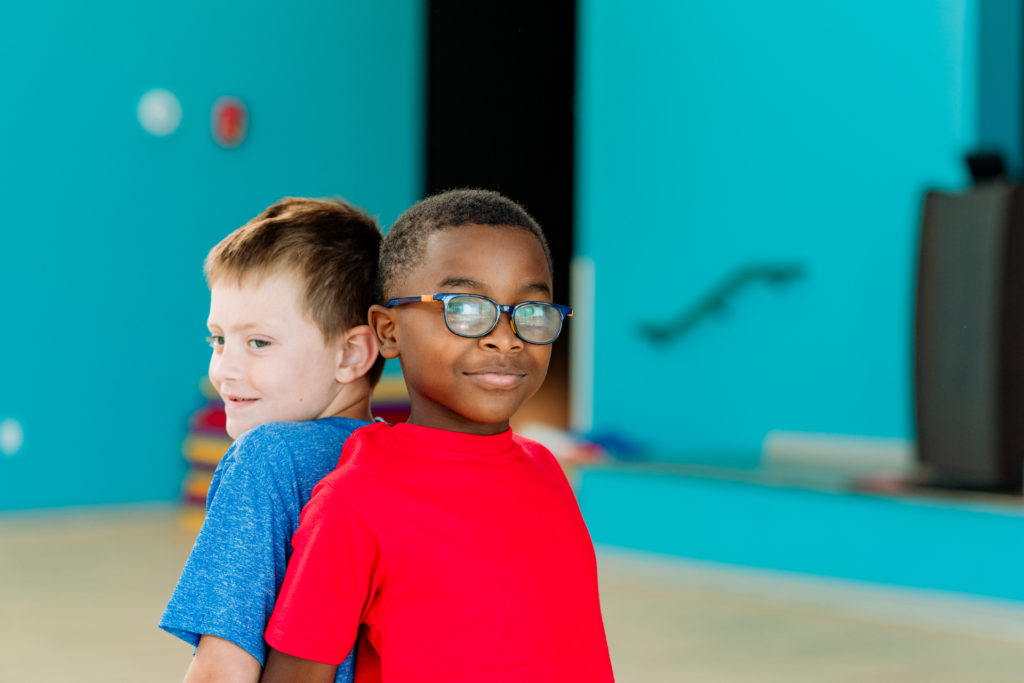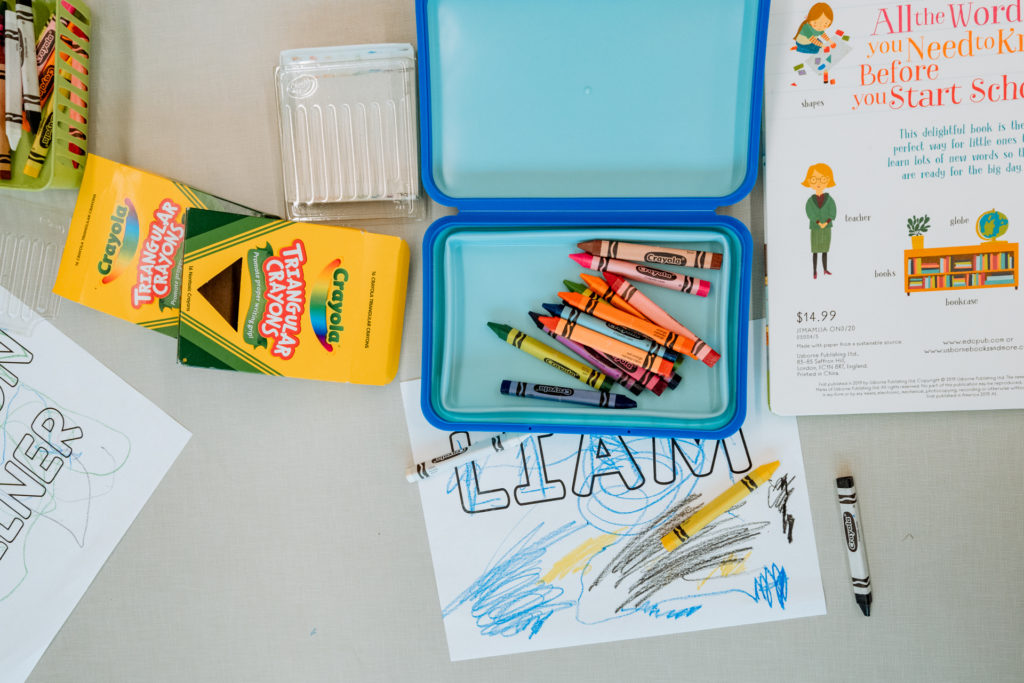Programs for Hearing Loss
At Magnolia Speech School, we believe that the barriers imposed by deafness can be overcome through early identification and intervention. Our method is to treat the child by promoting success in learning, social, emotional, intellectual, and physical development while emphasizing good character. The educational program for each child is designed for the development of communicative, cognitive, and social skills, which will facilitate the child’s integration into advanced educational settings and, ultimately, into society.
Because it is the ultimate goal of the school for children to complete this program ready to enter a general educational setting, Magnolia Speech School has structured our educational program around the three stages of the student’s needs: the Parent/Infant Program, the Self-Contained Classroom, and the Transitional Program.
We believe that the barriers imposed by deafness can be overcome through early identification and appropriate intervention.
Parent/Infant Program
The Parent/Infant Program is designed to start the child’s journey by educating the family regarding the needs that are unique to hearing impairment and coaching those family members in strategies designed to meet those needs.
Mississippi’s Universal Hearing Screening Law
Parents play a crucial role in the development of their children. When a hearing loss is diagnosed and aids are fitted, the educational process begins for both the parent and the child. Magnolia Speech School partners with the Mississippi State Department of Health in compliance with Mississippi’s Universal Hearing Screening law to provide these important services. This support is allowing Magnolia Speech School to offer our Parent/Infant Program free to all parents of hearing-impaired children birth to three years.
Screenings with Pediatric Audiologists
A trained specialist in early oral education of the deaf makes routine visits to families’ homes and day care centers. School-based sessions are scheduled as well. Parents and other family members learn about hearing loss, hearing aid management, auditory awareness, and ways to stimulate age-appropriate play and language. Our pediatric audiologist works closely with the families and children to ensure optimal aided benefit is being provided at all times. The audiologist also helps to determine cochlear implant candidacy of the children and counsels the families who are making the decision about implantation.

A “listening attitude” is developed as each hearing-impaired student at Magnolia is surrounded by sound and bathed in language until typical oral skills emerge.
The Self-Contained Classroom
In the Self-Contained Classroom, a well-trained teacher specializing in listening and spoken language is in charge of the day-to-day instruction in a setting promoting intensive, individual attention.
Auditory/Oral Instruction for Children 18 Months – 12 Years
Magnolia Speech School’s Self-Contained Classrooms for Children with Hearing Loss offer auditory/oral instruction to hearing-impaired children ages 18 months through 12 years. We provide a very small student-teacher ratio. All of our teachers are certified Teachers of the Deaf and continue to receive training in auditory/oral teaching methods through in-services, conferences, and visits to other OPTION schools. Each classroom also has a full-time assistant.
The 11-month educational program at Magnolia Speech School offers intensive small group therapy/instruction five days a week. Language and academic instruction are offered in the classroom and supported by individual therapy/services in auditory training. Speech therapy and occupational therapy are also available.
School Curriculum
Listening and spoken language classrooms have no more than six hearing-impaired students. A hearing child is often in the classroom as part of a reverse mainstream program. With a low student-teacher ratio, each child has a better opportunity to receive individualized instruction. The Magnolia Speech School curriculum is used to set goals and monitor progress for each child. The student’s instructional day includes instruction in the areas of audition, receptive language, expressive language, speech, reading, math, social studies, science, social interaction, and gross and fine motor skills if needed. The children are in an auditory/oral environment for the entire school day.
Developing a “Listening Attitude”
Using active learning and language-based instruction, teachers model language within each activity. After the child learns to imitate the model, the teacher shapes and expands what the student has offered. We employ sound field systems in the classroom so the students will receive better quality sound. Teaching the children to listen and process what they are hearing is central to classroom instruction. A “listening attitude” is developed as each hearing-impaired student at Magnolia Speech School is surrounded by sound and language until typical oral skills emerge.

Our teachers work closely with the student’s mainstream teachers to ensure a smooth, successful transition into a general educational setting.
Transition Program
The Transition Program is a crucial part of our school, as Magnolia Speech School’s staff continues to serve students on an outpatient basis as the students integrate into general educational settings.
Integrating Students Into Their Own Communities
Our primary goal at Magnolia Speech School is to integrate our hearing-impaired students into their own communities as early and seamlessly as possible. When a student is ready to transition, our teachers and staff help the parents make preparations for the child to merge successfully into the community.
Parents and teachers work closely together to provide workshops and in-services to schools, day care centers, and other family members so everyone is prepared and comfortable.
Our transition support services include on-site school visits by the hearing-impaired teacher, consultations with therapists, and in-services to school personnel. Our teachers work closely with the student’s mainstream teachers to ensure a smooth, successful transition. The Hackett-Bower Clinic offers weekly speech/language therapy, occupational therapy, audiological services, cochlear implant rehabilitation therapy, and tutoring as needed.
For more information on Magnolia Speech School’s Hearing Loss Programs, please contact the school.

